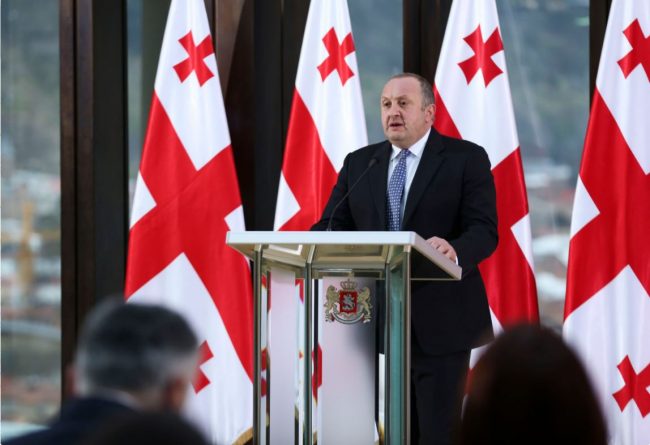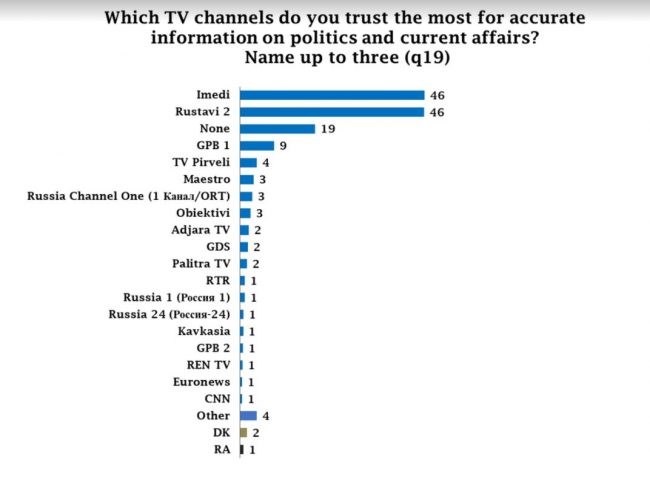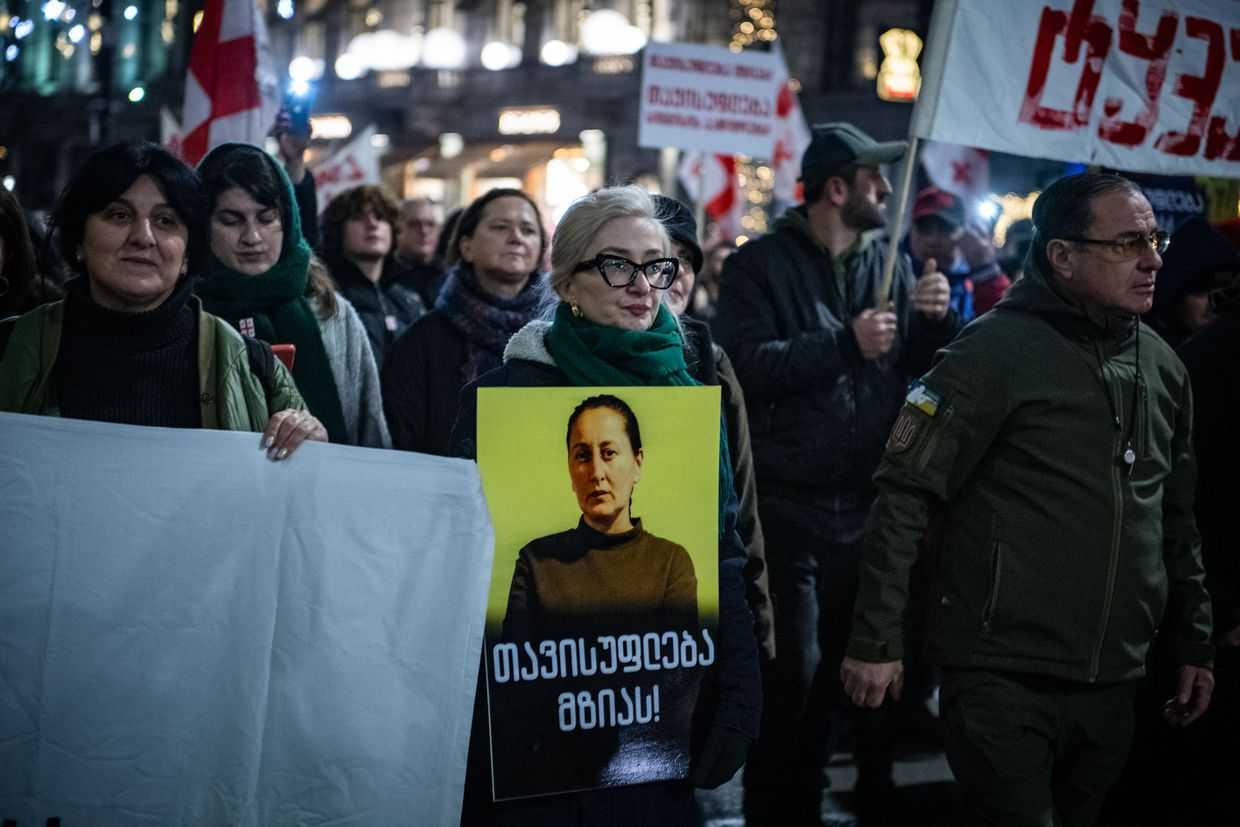

 Georgian President Giorgi Margvelashvili has vetoed a controversial bill which would have allowed more advertising to be aired on the Georgian Public Broadcaster (GPB). Parliament can now choose consider comments from the president, or to overrule the veto.
Georgian President Giorgi Margvelashvili has vetoed a controversial bill which would have allowed more advertising to be aired on the Georgian Public Broadcaster (GPB). Parliament can now choose consider comments from the president, or to overrule the veto.
The draft law to amend Georgia’s Law on Broadcasting, which passed its third and hearing in Parliament on 22 December, has faced opposition from other broadcasters and civil society, as well as Parliament’s Committee of Sectoral Economy and Economic Policy.
While announcing his decision to veto on 15 January, Margvelashvili pointed to what he says are ‘two major issues’ that, according to him, have not been properly discussed: allowing the GPB to operate like a commercial TV station on the advertising market, and allowing the station to avoid the Procurement Law while licensing and commissioning films and TV programmes.
The law mandates that public bodies hold tenders for any goods or services they purchase. Opponents of the bill claim this would decrease transparency at the broadcaster.
The broadcaster claims this will contribute to their development and allow them to better compete with commercial broadcasters.
If the changes are adopted, the GPB would still face restrictions, with advertisements limited to three minutes an hour and restricted entirely at prime times, on weekends, and on public holidays.
The bill will now return to parliament for further discussions, although they can choose to override the president’s veto.
Margvelashvili said that the advertising market, which ‘feeds private TV companies, is continuously decreasing’, and it would be ‘problematic’ if Public-funded broadcaster entered the market.
The GPB receives funding from the state budget — it received more than ₾50 million ($20 million) in 2017. It is allocated a certain percentage of Georgia’s GDP annually.
During their coverage of the president’s veto, GPB’s First Channel claimed the bill ‘should be a guarantor of the independence and development of the public broadcaster’.
According to them, the additional income received from advertisements would be spent for ‘GPB journalists and their professional development’.
Addressing the president’s second concern, GPB said they are not trying to avoid the Procurement Law, but would like to focus on ‘quality instead of price’ when purchasing programmes. According to them, this will have ‘a direct impact’ on ratings.
According to TVMR Georgia, who measure TV audiences in the country using the Nielsen method, GPB usually ranks fourth or fifth in ratings. However, the Nielsen method does not include social media outreach.
In a recent survey from the Washington-based National Democratic Institute (NDI) and CRRC Georgia, only 9% of people put GPB in their top three most trusted channels for ‘accurate information on politics and current affairs’. Imedi TV and the opposition leaning Rustavi 2 tied with 46% each. Nineteen percent of respondents reported that they trust none of the channels listed. The poll was conducted between 29 November and 19 December, with almost 2,300 people surveyed throughout the country.










